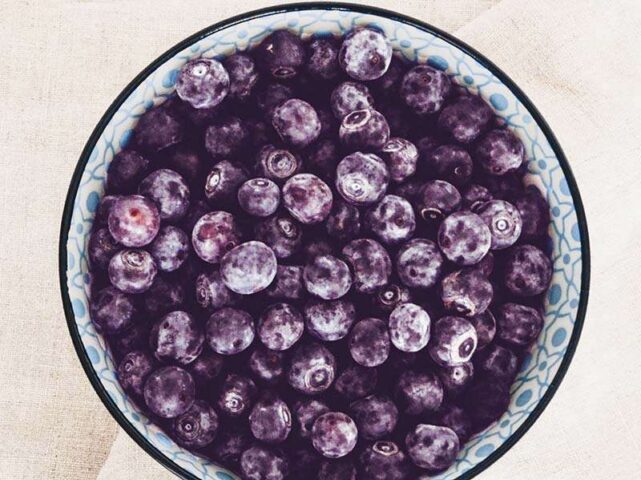By Lisa Mikus, RD, CNSC, CDN
How to take care of your heart this Valentine’s Day
The first two weeks of February are inundated with ads selling diamonds, chocolate, and luxury vacations. Yet, Valentine’s Day doesn’t have to be about the material items. Instead look to self-care, specifically at your efforts around heart health in honor of Valentines and American Heart Month as determined by the American Heart Association. Heart disease is the number one cause of death worldwide. Taking care of your heart through food, mindfulness and sleep is the best gift to give yourself.
Here are a few ways to practice heart health focused self-care this February.
Assess Your Heart Health
If you haven’t visited your PCP within the last year, consider making an appointment to gain information regarding your cardiovascular wellness. Discuss your family history and lifestyle with your PCP. Specific lab values to discuss include blood pressure, Total cholesterol to HDL ratio, LDL, and triglycerides.2.
Consult an RD
If you are curious about how to improve your cardiovascular health, consult with a Registered Dietitian Nutritionist (RD/RDN). RDNs use medical nutrition therapy to help improve the health and wellness of their clients. RDs provide education and support implementation of behavioral change. A Registered Dietitian Nutritionist will help you make small, realistic lifestyle changes with the goal of sustainable and lasting improvement.
Your dietitian may suggest incorporating “heart healthy” foods into your intake. Keep in mind we like to identify these foods as anti-inflammatory which include dark leafy greens (spinach and kale), whole grains (millet, buckwheat, whole wheat pasta), and fats high in omega-3 fatty acids. Our bodies cannot produce these fatty acids so we must obtain them from foods. Two essential fatty acids are docosahexaenoic acid (DHA) and eicosapentaenoic acid (EPA). Another omega-3 is called Alpha-linolenic acid (ALA) which can be converted into DHA and EPA. Eating foods high in omega-3s is an important component of cardiovascular health. If your labs indicate high triglyceride levels, fish oil supplementation has been shown to decrease circulating triglycerides in the blood. Foods high in omega-3s include fatty fish such as salmon and tuna, chia seeds, flaxseeds, and walnuts.
Scroll down for two heart healthy recipes from Everyday Diabetes Meals – Cooking for One or Two by Laura Cipullo, RD and Lisa Mikus, RD.
Manage Your Stress & Sleep
We know that stress can affect one’s overall health. Mindfulness-Based Stress Reduction (MBSR) has been studied in association with improved health outcomes, including cardiovascular health. MBSR is a program developed by Dr. Jon Kabat-Zinn. MBSR teaches participants to practice mindfulness meditation, described as a non-judgmental awareness that lowers reactivity to stress. Mindfulness has been associated with improved outcomes related to many diseases including diabetes and heart disease. According to a randomized control study published in 2013, an outpatient MBSR program successfully reduced participants’ symptoms including anxiety, depression, blood pressure, and perceived stress in those with Coronary Heart Disease.
Sleep hygiene is an important piece of one’s overall wellness that often gets overlooked. Yet, sleep has been thoroughly researched in association with health outcomes as the amount of sleep you get every night impacts your stress level and hormonal balance. According to the American Heart Association, sleep disorders and short duration of sleep has been associated with a number of cardiovascular related issues such as high blood pressure, heart disease, and stroke. Furthermore, insomnia has been associated with increased risk of stroke. The American Academy of Sleep Medicine recommends at least 7 hours of sleep every night.
Heart-Healthy Recipes from Everyday Diabetes Meals – Cooking for One or Two
by Laura Cipullo, RD & Lisa Mikus, RD
Herb-Roasted Salmon
Makes 2 Servings
Preheat oven to 325 degrees F
Lemon Dill Marinade
3 tbsp chopped fresh dill
1 tsp freshly ground black pepper
Pinch salt
2 tbsp freshly squeezed lemon juice
2 tsp olive oil
2 tsp Dijon mustard
1 tsp olive oil
2 pieces (each 4 oz/125 g) skin-on salmon fillet
- Lemon Dill Marinade: Whisk together dill, pepper, salt, lemon juice, oil and mustard.
- Place salmon in a sealable plastic bag and pour marinade over top. Seal bag and let marinate in the refrigerator for at least 1 hour or for up to 12 hours.
- In ovenproof skillet, heat oil over medium-high heat. Increase heat to high and transfer salmon to the skillet flesh-side down (reserving marinade). Sear for 1 minute.
- Pour reserved marinade over salmon., flip salmon over and transfer skillet to preheated oven. Bake for 10 to 12 minutes or until fish is opaque and flakes easily when tested with a fork.
Peanut Butter Energy Balls
Makes 8 balls (4 balls per serving)
1 tbsp chia seeds
¼ cup creamy natural peanut butter
1 tbsp water
2 pitted dates, diced
¼ cup large-flake (old-fashioned) rolled oats
2 tbsp slivered almonds
1 tbsp ground cinnamon
- In a medium, microwave-safe bowl, microwave chia seeds, peanut butter, and water on High for about 30 seconds or until melted. Add dates, oats, almonds, and cinnamon. Stir to combine.
- Using your hands, shape the mixture into 8 balls and arrange in prepared shallow container. Freeze overnight.
References:
https://www.health.harvard.edu/blog/fish-oil-friend-or-foe-201307126467
https://ods.od.nih.gov/factsheets/Omega3FattyAcids-HealthProfessional/
https://aasm.org/seven-or-more-hours-of-sleep-per-night-a-health-necessity-for-adults/
https://www.ncbi.nlm.nih.gov/pubmed/30739006
https://www.ncbi.nlm.nih.gov/pmc/articles/PMC3734636/
https://www.ncbi.nlm.nih.gov/pmc/articles/PMC3563284/
https://www.ahajournals.org/doi/full/10.1161/strokeaha.113.003675
http://circ.ahajournals.org/content/134/18/e367
https://www.ncbi.nlm.nih.gov/pmc/articles/PMC4928628/
https://www.ncbi.nlm.nih.gov/pmc/articles/PMC3734636/
https://www.ncbi.nlm.nih.gov/pmc/articles/PMC4928628/
Rosenzweig, S., Reibel, D. K., Greeson, J. M., Edman, J. S., McMearty, K. D., et al. (2007). “Mindfulness-Based Stress Reduction is Associated with Improved Glycemic Control in Type 2 Diabetes Mellitus: A Pilot Study.” Alternative Therapies in Health and Medicine 13: 36–38.
Klatt, M., Norre, C., Reader, B., Yodice, L., & White, S. (2017). Mindfulness in motion: a mindfulness-based intervention to reduce stress and enhance quality of sleep in Scandinavian employees. Mindfulness, 8(2), pp. 481-488.








